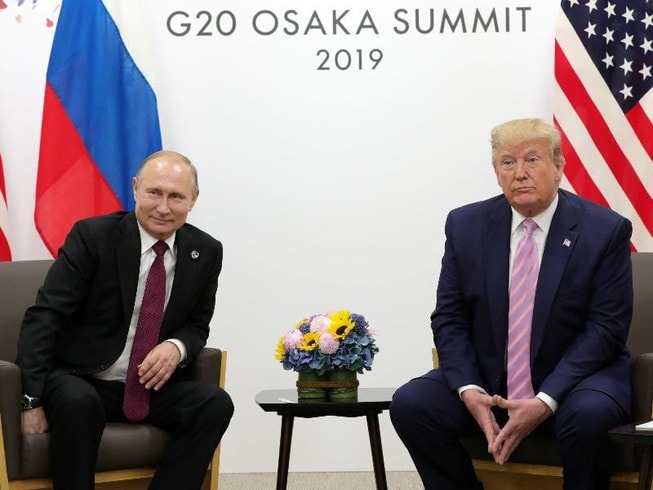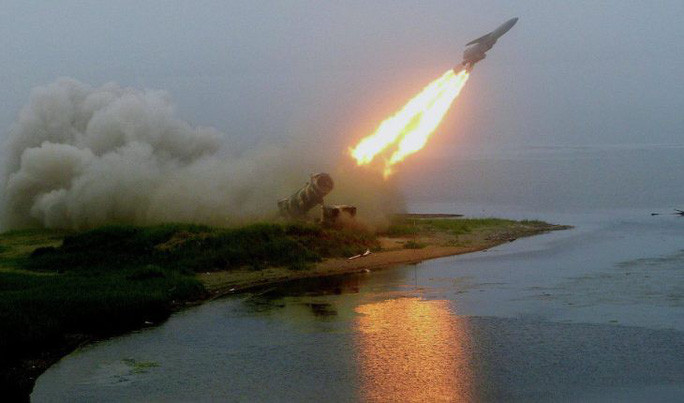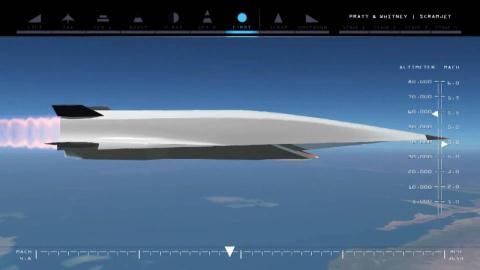Putin invites US to buy Russian hypersonic weapons
President Putin has just revealed surprising information when he invited his US counterpart, Donald Trump, to buy Russian-made hypersonic weapons.
According to RIA, speaking at the Eastern Economic Forum held in Russia, President Putin revealed on September 5 that in a recent phone call, he invited President Trump to buy one of the hypersonic weapons that can carry nuclear warheads that Moscow is developing to fill the gap between the two countries in the high-speed weapons segment.
"I told Donald: If America wants Russian hypersonic weapons, we will sell them. So we will balance everything immediately," President Putin said, adding that President Trump had rejected the offer and said the US was developing its own weapons.
 |
| Russian President Vladimir Putin (left) and his US counterpart Donald Trump at the G20 Summit in Japan at the end of June. Photo: Sputnik |
Along with information from Mr. Trump, on September 5, the Pentagon also announced that contractor Dynetics Technical Solutions had received a contract worth 351.6 million USD to manufacture the first batch of new generation hypersonic weapons Common-Hypersonic Glide Body (C-HGB).
As required, the company will have to produce at least 20 C-HGB hypersonic warheads for the US Navy, Army and Air Force and meet technical requirements set by the Pentagon.
Along with that, the Pentagon cooperated with Lockheed Martin to develop a new hypersonic missile line Long-Range Hypersonic Weapon (LRHW) with a contract package worth more than 400 million USD to carry and launch C-HGB.
America's determination with hypersonic weapons is quite clear, but according to expert Herbert Efremov of Russia's NPO Mashinostroyeniya Corporation, to realize their ambition, the Americans must first manufacture reliable shells and engines for hypersonic missiles.
 |
Russia's Zircon hypersonic missile can reach speeds eight times the speed of sound. Photo: NEXT BIG FUTURE |
The main problem is not the speed of the weapon, since intercontinental ballistic missiles have long achieved this speed, but the problem lies in ensuring long-distance flight at supersonic speeds.
Currently, hypersonic weapon tests are being conducted in many different countries, but with ramjet engines, this type of engine is not yet capable of ensuring stable combustion in the combustion chamber at high speeds.
The big problem that the US has not been able to overcome with this type of weapon is that its shell will heat up when flying at high speed. When flying at hypersonic speed, the warheads are heated to thousands of degrees and create a plasma cloud around them.
The same is true of spacecraft and intercontinental ballistic missiles. But their trajectories extend far beyond space, where there are no air currents to impede them. Hypersonic missiles, on the other hand, fly largely through dense air.
The US has conducted several tests of its X-51A hypersonic missile, which can be launched from B-52 and B-1 Lancer bombers. But many sources show that the US has failed with this program.
|
US X-51A hypersonic missile. |
In addition, the US is also researching the SR-72 supersonic unmanned aerial vehicle (UAV), which will replace the SR-71 strategic reconnaissance aircraft, and can accelerate to 3,530 km/h. This UAV is also said to be used for attack purposes.
But up to now, the SR-72 only exists in model form. Therefore, in order to achieve the same achievements as Russia in the field of hypersonic weapons, the US must first create reliable materials to produce missile shells.

